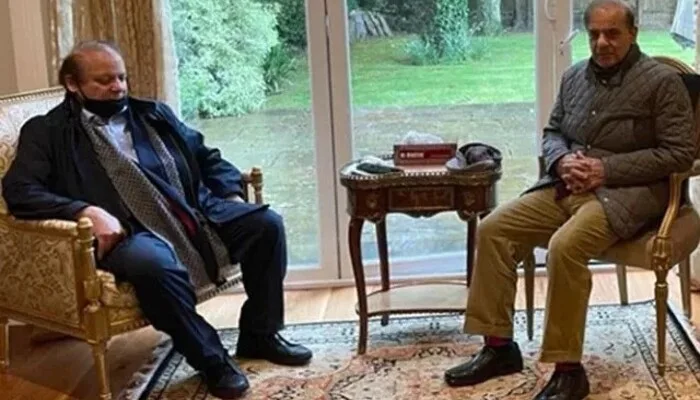Efforts to defuse tensions in the ongoing Sindh canals dispute took a positive turn as the federal and Sindh governments agreed to resolve the matter through dialogue. Adviser to the Prime Minister Rana Sanaullah and Sindh’s Senior Minister Sharjeel Memon reached this understanding during a telephonic conversation on Sunday. The development follows rising tensions over controversial irrigation projects in Punjab, which have sparked protests and political backlash in Sindh.
Nawaz Sharif Calls for Dialogue
The agreement came a day after PML-N leader Nawaz Sharif directed the federal government to initiate talks with the Pakistan Peoples Party (PPP). He emphasized that political point-scoring must be avoided on sensitive national issues such as water distribution.
During the call, PML-N Punjab President Sanaullah assured Memon that the federal leadership, including Prime Minister Shehbaz Sharif and Nawaz Sharif, had instructed officials to address Sindh’s concerns.
“We are ready for negotiations with Sindh,” Sanaullah stated, confirming the federal government’s willingness to find common ground.
Sindh Maintains Strong Reservations
Sharjeel Memon reiterated Sindh’s firm stance on the issue. He highlighted that the province has voiced its objections at every available forum.
“The PPP and the people of Sindh have serious concerns about the disputed canals,” Memon said. “We demand a fair distribution of water under the 1991 water agreement.”
He further stated that the PPP remains open to discussions with the federal government, aiming to reach a peaceful resolution.
Read: Sharif Brothers Call for Dialogue to Resolve Water Dispute
Background of the Controversy
The dispute escalated after Punjab Chief Minister Maryam Nawaz and Army Chief Gen Asim Munir inaugurated the Cholistan irrigation project on February 15. The initiative aims to bring water to South Punjab’s arid lands, but Sindh sees it as a threat to its rightful water share.
In March, the Sindh Assembly unanimously passed a resolution opposing the project. Political parties and civil society have since organized protests, criticizing the water diversion towards the TP Link Canal.
The Indus River System Authority (IRSA) has defended its actions, claiming all decisions were made according to the law. However, Sindh leaders have consistently challenged the legality and fairness of these decisions.
Bilawal Warns Against Confrontation
On April 18, PPP Chairman Bilawal Bhutto-Zardari issued a stern warning to the PML-N government. While addressing a massive public gathering in Hyderabad, he said the PPP would not cooperate with the federal government unless it addressed the party’s objections and halted the canal projects.
He cautioned that ignoring Sindh’s concerns would lead to political fallout between the ruling coalition partners.
Federal Response: No Unilateral Action
Minister of State for Religious Affairs Kesoo Mal Kheal Das, speaking in Hyderabad, reassured Sindh that no unilateral decisions would be taken.
“The Centre will not move forward until Sindh’s concerns are addressed,” he stated. He emphasized that discussions would be brought to constitutional platforms like the Council of Common Interests.
He also clarified that the project had not yet received approval from the Executive Committee of the National Economic Council (ECNEC).
Political Unity Over Division
Das condemned recent attacks on his convoy in Thatta but refrained from blaming the PPP. He reaffirmed that the federal government would continue its work and not bow to pressure tactics.
“Some elements are trying to create rifts between the PPP and PML-N. We will not allow that to happen,” he said, expressing hope for a united approach to national development.
Follow us on Google News, Instagram, YouTube, Facebook,Whats App, and TikTok for latest updates
